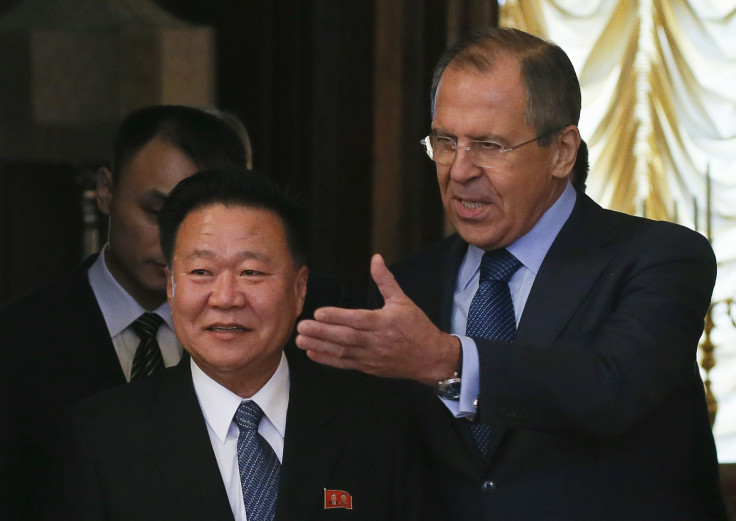North Korea Nuclear Update: DPRK Ready To Resume Suspended Six-Party Talks

North Korea is ready to resume nuclear talks suspended in 2009, Russian Foreign Minister Sergey Lavrov said Thursday, just hours after Pyongyang warned it could conduct another nuclear test in response to a U.N. resolution condemning North Korean human rights violations. Following a meeting with North Korean envoy Choe Ryong Hae, Lavrov said he received assurances that North Korea is ready to resume six-party talks, without preconditions, according to ABC News.
“We actively support such a position, promote it, and we will work with other members of the six-sided talks, including with the United States, the Republic of Korea, Japan, in order to find agreements over the renewal of this very important political process,” he continued.
The on-again-off-again six-party talks were started in 2003 after North Korea withdrew from the Nuclear Non-Proliferation Treaty. The parties are South Korea, North Korea, the U.S., China, Japan and Russia. North Korea agreed to suspend its nuclear enrichment program in exchange for aid but restarted the program and withdrew from talks in 2009 after the U.N. Security Council condemned a failed North Korean satellite launch. The U.S., South Korea and Japan said the launch aimed to test an intercontinental ballistic missile capable of delivering nuclear warheads.
Choe met with Russian President Vladimir Putin on Tuesday to deliver a letter from Kim Jong Un that Lavrov said expressed interest in expanding bilateral ties with Russia and cooperating “on settling the problems that still remain on the Korea Peninsula,” according to the Associated Press.
Hours earlier, North Korea’s foreign ministry called a U.N. resolution that pinned North Korea’s human rights abuses to its high leadership -- including Kim -- a “grave political provocation.”
“Hostile action toward DPRK by the U.S. makes us not refrain from conducting a new nuclear test,” said the DPRK’s state-run television news outlet KRT. “Our deterrence will grow unlimitedly stronger to cope with the armed intervention and invasive plans by the U.S.”
The U.N. resolution called on the U.N. Security Council to consider sanctions against key figures in North Korea's leadership and refer those individuals to the International Criminal Court. Permanent Security Council members Russia and China are expected to veto any such action.
Lavrov urged an end to what he called “the current situation at the six-party talks,” which he said is to “to build up military preparations, carry out drills unproportional [sic] to the scale of the real problems and to approach the provision of security in the region from the point of view of a bloc.”
Lavrov did not point to any one party as responsible for “the current situation,” but the U.S. and South Korea regularly hold large, joint military drills on the Korean Peninsula to deter North Korean aggression. The last such drill took place earlier this month and involved more than 330,000 American and South Korean troops. It was the largest such drill in nearly 20 years. The DPRK strongly opposed the drill.
© Copyright IBTimes 2025. All rights reserved.






















